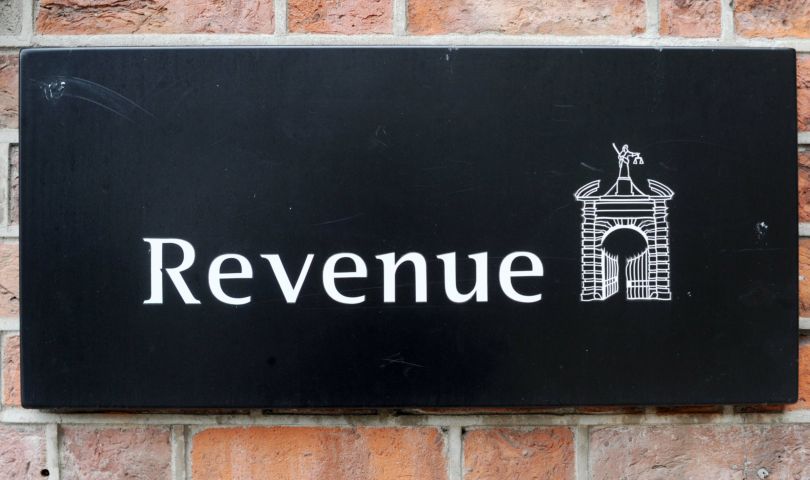Revenue has outlined some actions to assist SMEs experiencing cashflow and trading difficulties arising from the impacts of coronavirus.
Tax Returns: Businesses experiencing temporary cashflow difficulties should continue to send in tax returns on time.
Application of Interest: The application of interest on late payments is suspended for January/February VAT and both February and March PAYE (Employers) liabilities.
Debt Enforcement: All debt enforcement activity is suspended until further notice.
Tax Clearance: Current tax clearance status will remain in place for all businesses over the coming months.
Subcontractors: The Relevant Contract Tax rate review scheduled to take place in March 2020 is suspended. This process assesses the current compliance position of each subcontractor in the eRCT system and determines their correct RCT deduction rate, i.e. 0%, 20% or 35%. As this process may result in a subcontractor’s RCT rate increasing due to changes in their compliance position, the review is suspended.
RCT rate reviews can be self-managed in ROS. Subcontractors can check if their rate should be lower and can then ‘self-review’ to get that lower deduction rate.
Importing Goods: Critical pharmaceutical products and medicines will be given a Customs ‘green routing’ to facilitate uninterrupted importation and supply. A Revenue statement added that businesses other than SMEs who are experiencing temporary cash flow or trading difficulties should contact the Collector-General’s office on (01) 738 3663.
“Revenue will continue to closely monitor the evolving situation regarding Covid-19 and will issue further updated guidance for businesses when required and particularly in good time before the March/April VAT returns, and other future returns are due,” the statement concluded.
Business Reaction
Adrian Cummins, CEO of the Restaurants Association of Ireland, said the new Revenue measures don’t go a fraction of the way towards helping businesses in the hospitality sector
“Thousands of workers are being laid off as we speak. A specific aid package for the Tourism and Hospitality sector needs to be in place by Monday morning,” he stated.
The RAI’s emergency demands are:
• Immediate reduction of the VAT rate to 9% for Tourism and Hospitality businesses for a minimum period of six months
• Banks should defer loan repayments for at least six months
• Revenue must introduce a moratorium on VAT payments
• Employer PRSI must be halved to support employers.
Elaina Fitzgerald Kane, president of the Irish Hotels Federation, described official response to the coronavirus crisis as grossly inadequate.
“By only offering to waive interest on late tax payments temporarily, the government is threatening tens of thousands of jobs and the ability of many tourism businesses and their suppliers to survive this crisis” she stated.
“Our members are experiencing alarming levels of cancellations which are having a sudden and catastrophic impact on cashflow. This is affecting their ability to pay their employees, first and foremost, with layoffs and short-time working now becoming a reality. For rural hotels in particular, the consequences are dire.”
Fitzgerald Kane added: “Tourism ministers Shane Ross and Brendan Griffin have recognised the deep crisis facing the tourism, hospitality and leisure sectors and sought government agreement for urgent assistance for businesses that would ease cashflow pressures. The government must safeguard this essential indigenous industry that employs 260,000 people across every town and county, accounting for one in every 10 jobs.”
The Irish Travel Agents Association is calling for "extraordinary support measures" for travel and tourism businesses. To maintain employment, the ITAA has suggested a payment from government to employers equivalent to Jobseekers Benefit per staff member. The organisation says this could help businesses to maintain salaries for a period of six to 12 weeks.
Travel agents are also calling for a mandatory 40% reduction in commercial rents until the end of the year, and a similar reduction in commercial rates. They also want employers’ PRSI waived until the end of 2020.
Footfall Declines
Meanwhile, Dublin Town, the lobby group representing 2,500 businesses in Dublin city centre, says that city-wide footfall declined by 5.6% this week compared with a year ago. Streets with a large restaurant and pub offer such as South William St. and Dame Court saw declines of c.11%.
The group stated: “Members are reporting large reductions in trade across all sectors, retail as well as hospitality. As income reduces businesses will find it increasingly difficult to meet their costs. The state through costs such as rates representsa significant proportion of these outlays.
“For the duration of the crisis, Dublin Town is calling for the state to meet these local authority costs through a HAP style scheme, which would see central government meeting local authority charges. In addition, VAT should be reduced to the lowest level permissible. DublinTown also recommends the postponing of employers’ PRSI until the crisis is resolved.”
Microfinance Ireland Loans
For businesses in need of urgent working capital, Microfinance Ireland is making available loans of up to €50,000.
The COVID 19 Business Loan is a government funded initiative. MFI says that micro enterprises i.e. under 10 employees and annual turnover under €2m, are eligible if they have suffered a reduction of 15% or more in turnover due to the crisis and they are having difficulty in accessing bank finance.
Loan terms and application details are available here.
Illness Benefit
The Department of Employment Affairs and Social Protection is introducing measures to provide income support to people affected by coronavirus. Three changes have been announced:
• The current 6-day waiting period for Illness Benefit will not apply to anyone who has COVID-19 (Coronavirus) or is in medically-required self-isolation
• The personal rate of Illness Benefit will increase from €203 per week to €305 per week for a maximum of two weeks medically-required self-isolation or for the full duration of absence from work following a confirmed diagnosis of COVID-19
• The normal social insurance requirements for Illness Benefit will be changed.
Illness Benefit is not payable to people who are advised by the HSE to self-quarantine after returning to Ireland from Italy, Spain, China, South Korea and Iran.
Download full details of revised Illness Benefit here.










